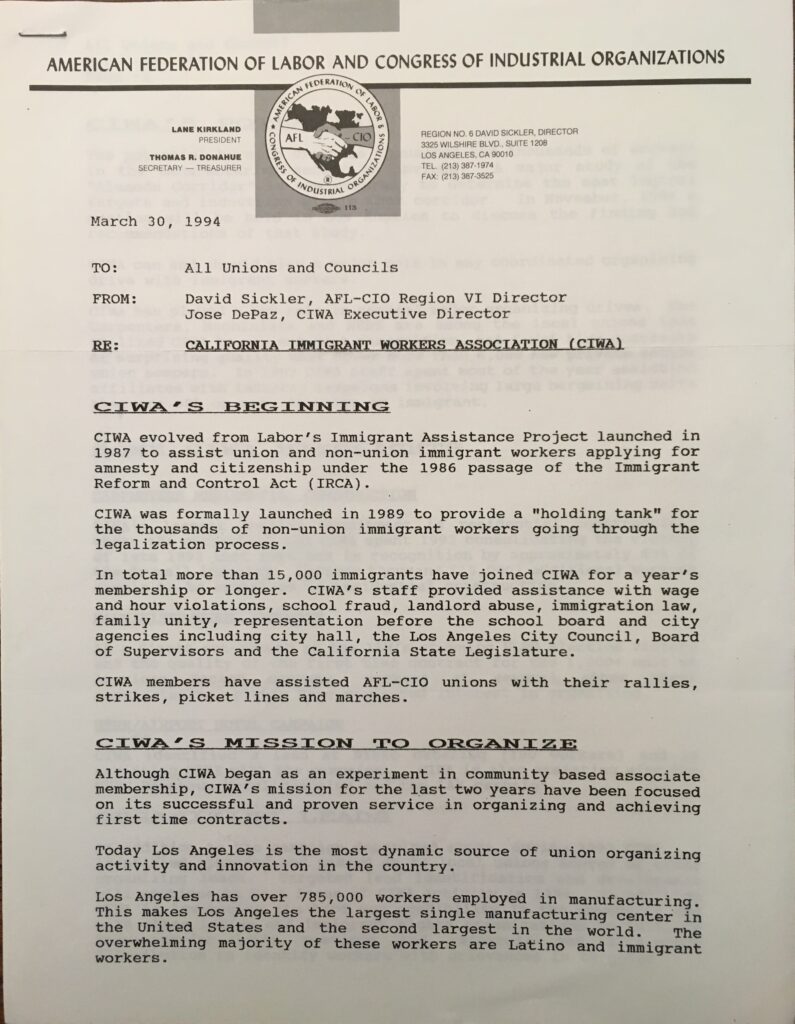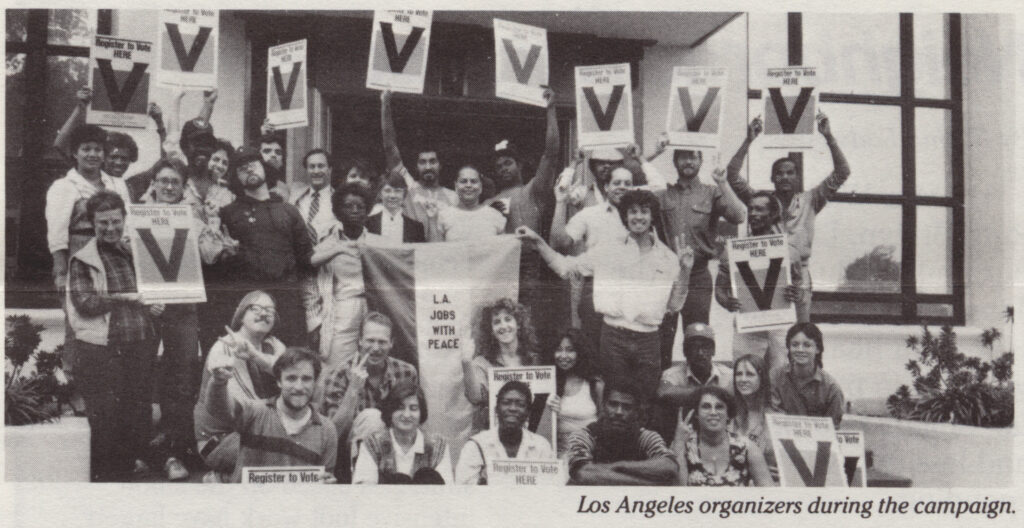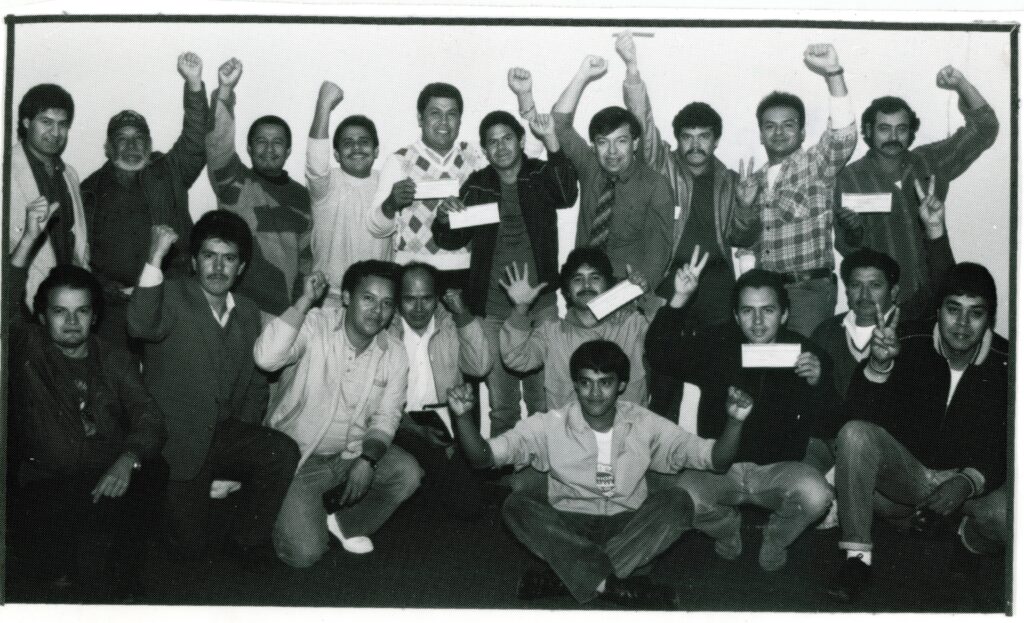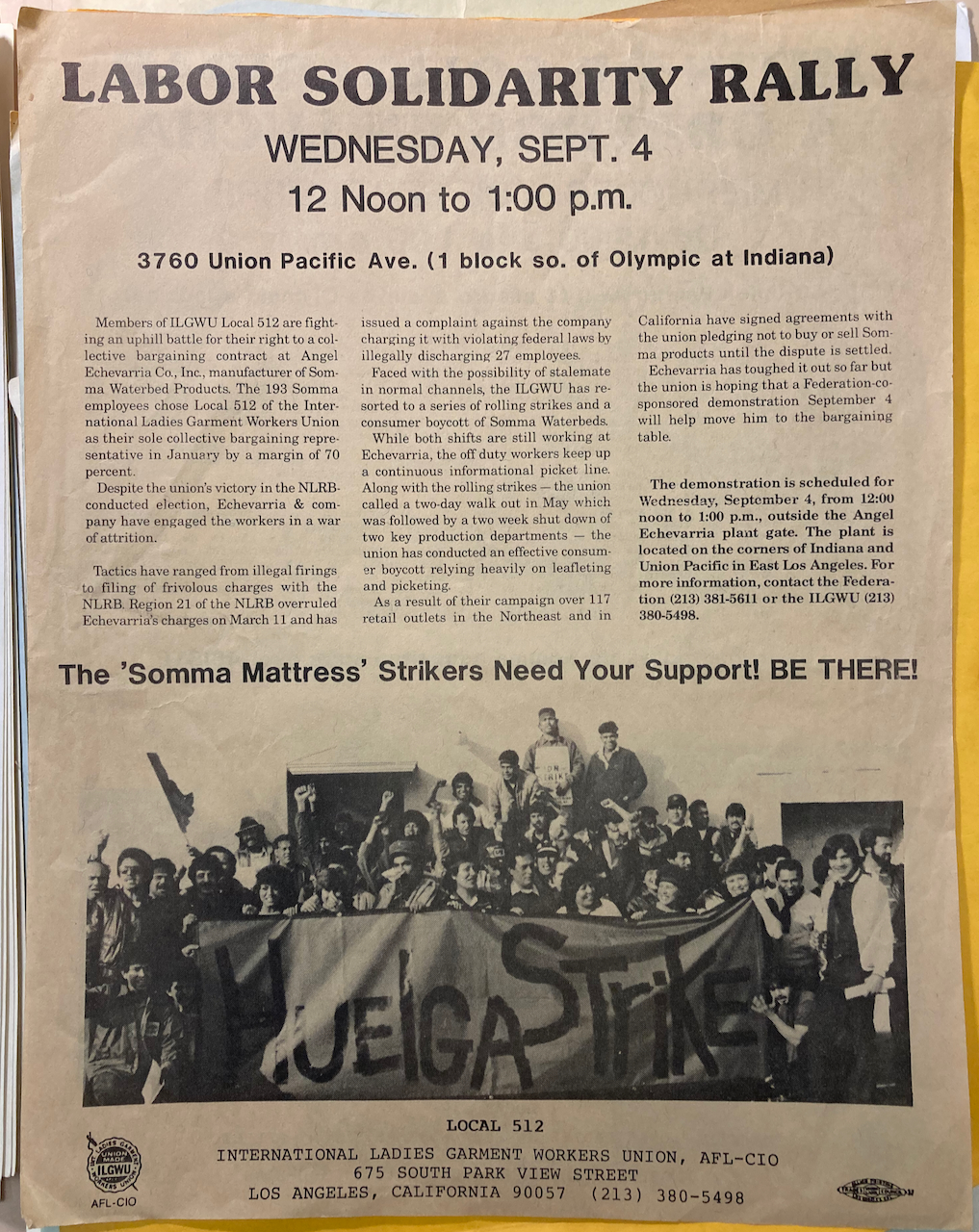
Launched in 1989, the California Immigrant Workers Association (CIWA) supported a number of break-through union campaigns with immigrant workers. David Sickler, regional director for the AFL-CIO, conceived of CIWA as a way to funnel support for the many organizing drives that developed in the wake of the Immigration Reform and Control Act. CIWA staff provided legal and organizing aid to immigrant workers and connected them with unions, and advised unions on organizing best practices. However, in the spring of 1994 national leaders of the AFL-CIO decided to stop funding the program. In this memo, Sickler and CIWA staffer Jose De Paz appeal to southern California union leaders to help fund CIWA. The demise of CIWA came just months before immigrant rights groups and unions scrambled to fight the anti-immigrant Proposition 187 in the November 1994 election. View the document.
From the UNITE HERE Local 11 Records, Box 17 Folder 6, UCLA Library Department of Special Collections.



